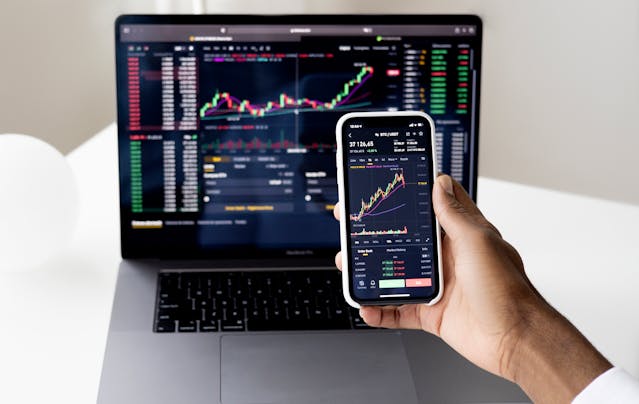SMT
PersonalFinance
Global Markets
GLOBAL MARKETS INSIGHT
The global financial markets are undergoing a period of significant transformation and uncertainty. Investors are keenly observing a multitude of factors that are influencing market dynamics and shaping investment strategies. This article delves into the current state of global markets, examining the economic, geopolitical, and technological elements that are driving change and presenting both challenges and opportunities.
The economic landscape remains a critical factor in global market performance. The recovery from the COVID-19 pandemic is uneven across different regions. Advanced economies like the United States and European Union countries have largely returned to pre-pandemic levels of activity, buoyed by substantial fiscal and monetary support. However, emerging markets are lagging behind, hampered by slower vaccination rates, ongoing health crises, and less fiscal space to support economic recovery. This divergence is creating a complex environment for global investors, who must navigate varying levels of economic stability and growth potential.
Inflationary pressures are another significant concern for global markets. The surge in demand as economies reopen, coupled with supply chain disruptions, has led to rising prices across a range of goods and services. Central banks are faced with the challenge of balancing the need to support ongoing economic recovery while preventing runaway inflation. The Federal Reserve, European Central Bank, and other major central banks are signaling potential shifts in monetary policy, including interest rate hikes and tapering of asset purchases. These moves are closely watched by investors, as they can impact asset prices, borrowing costs, and overall market sentiment.
Geopolitical risks continue to influence global markets. Tensions between major economies, such as the United States and China, have significant implications for trade, investment, and economic growth. Trade policies, sanctions, and diplomatic relations are all factors that can affect market stability and investor confidence. Additionally, regional conflicts and political instability in areas like the Middle East and Eastern Europe can lead to volatility in commodity prices and broader market uncertainty.
Technological advancements are rapidly reshaping the global market landscape. The digital transformation accelerated by the pandemic has led to increased investment in technology sectors, including fintech, e-commerce, and cybersecurity. Companies are leveraging new technologies to drive efficiency, enhance customer experiences, and create new revenue streams. However, this rapid technological change also brings challenges, such as regulatory scrutiny, cybersecurity threats, and the need for continuous innovation. Investors are paying close attention to how companies adapt to these technological shifts and the potential for long-term growth.
Environmental sustainability is becoming an essential consideration for global investors. The transition to a low-carbon economy is driving changes in energy production, consumption patterns, and corporate behavior. Governments and corporations are increasingly committing to reducing carbon emissions and adopting sustainable practices. This trend is influencing investment decisions, with a growing emphasis on environmental, social, and governance (ESG) criteria. The shift towards sustainable investing is expected to have a profound impact on various sectors, particularly those involved in energy production and heavy industries.
In the face of these multifaceted challenges and opportunities, diversification remains a key strategy for investors. By spreading investments across different asset classes, regions, and sectors, investors can mitigate risks and capitalize on growth opportunities. Active management and a keen understanding of market trends are essential for navigating the current global market environment. As the world continues to evolve, staying informed and adaptable will be crucial for achieving long-term investment success.
In conclusion, the global markets are at a pivotal moment, shaped by economic recovery efforts, inflation concerns, geopolitical risks, technological advancements, and environmental sustainability trends. Investors must stay vigilant and adaptable, leveraging diverse strategies to navigate the complexities of the market. The ability to understand and respond to these dynamic factors will be key to capitalizing on opportunities and managing risks in the ever-changing global market landscape.





